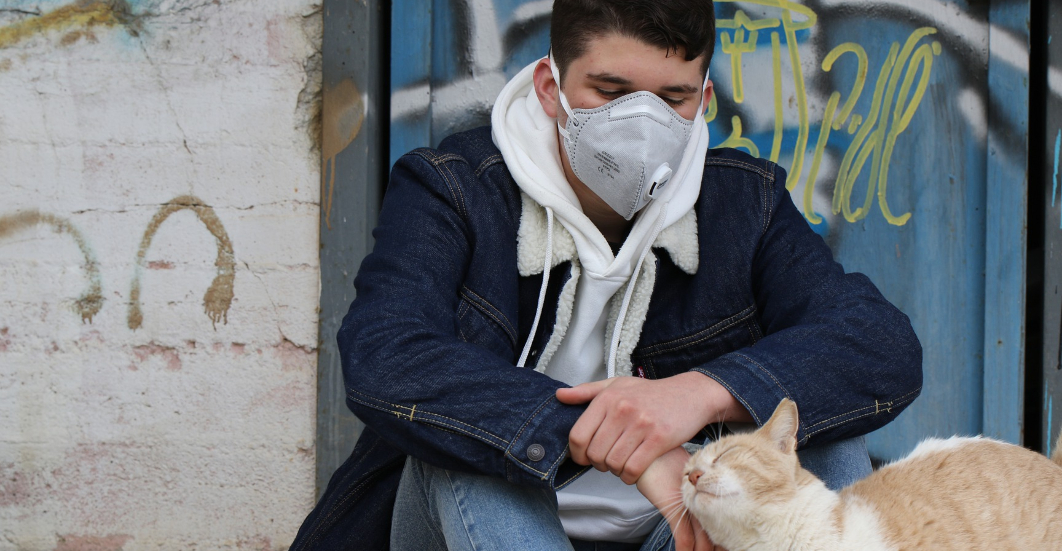
Charisse Tierney reflects on how the pandemic has given us the opportunity to help our teens examine their motives and priorities.
“My friends said they think the bishop won’t lift the dispensation for at least a couple of more weeks.”
“That dispensation is not there so you can skip Mass to go tubing at the lake with your friends!”
My teenage son and I were talking about a weekend trip to the lake that he wanted to take with his friends. Although a dispensation was still in place due to COVID concerns, our family had been comfortable with attending regularly for a few weeks, and I expected my son to make time to get to Mass during his weekend.
He assured me he would make it back in time for a Sunday evening Mass. But late Sunday afternoon, he called me from the lake and said he wouldn’t make it back for the Mass he had been planning to attend. I looked up some Mass times at other parishes in our city and told my son that, no matter how tired he was, he would just have to drive across town and attend a later Mass.
He knew arguing with me would be futile, and he did make it to Mass later that evening, but the whole scenario gave me a new perspective on how he was perceiving the importance of the Mass.
So many aspects of living our faith have changed due to COVID-19. Mass, Bible studies, parish activities, and reaching out in physical service to others have all been on pause. And as we start to have the opportunity to do some of these things again, we have to examine the motives and desires of our hearts in entirely new ways. Am I determined to get creative and arrange for our bible study to meet outside somewhere? Is it time for our family to don masks and get back to in person Mass? While there are certainly still many health concerns that continue to fluctuate, am I also aware of when I might be using COVID as an excuse to grow complacent in living out my faith?
Our priest recently wrote an article in our parish newsletter titled “When Should I Return to Sunday Mass?” He wrote that the answer is twofold: “(1) When you are confident your health is protected and (2) When you start freely going to social activities.” He acknowledged the valid concern of protecting one’s health and that each person’s situation is different in that regard.
But he also said, “When a person notices that he or she is increasingly going to social activities or entering more social circles, then going to public Mass should be considered a priority as well. We should be consistent in our public activity. Going to the public pool, restaurants, other people’s houses, or sending children to sports practices or large play dates are all indicators that one is feeling his or her health is not at risk. When that happens, attending Sunday Mass should become a priority. Going to Sunday Mass is, quite frankly, irreplaceable.”
This is the message I was trying to convey to my teenage son -- that if you are making going to the lake with your friends a priority, then Mass should be a priority also.
My son will be off to college in just two short years. He will be faced with many temptations and many more possible reasons for missing Mass. The pandemic has given us the opportunity to help him examine his motives and to clearly see that attending Mass is a high priority.
Since his weekend at the lake, my son has been working long, irregular hours in hopes of soon having enough money to buy his first car. While he really wants that car, he hasn’t once asked to miss Mass so he can pick up one more hour at work. And that is one more little blessing that has come out of this pandemic--the opportunity to convey to my kids the importance of the Mass.
Copyright 2020 Charisse Tierney
Image: Pixabay (2020)
About the Author

Charisse Tierney
Charisse Tierney lives in Wichita, Kansas, with her husband Rob and seven children. Charisse is a stay-at-home mom, musician, NFP teacher, and a Catechesis of the Good Shepherd catechist. She is also a contributing author to The Catholic Mom's Prayer Companion and Family Foundations magazine. Charisse blogs at Paving the Path to Purity and can be found on Facebook.


.png?width=1806&height=731&name=CatholicMom_hcfm_logo1_pos_871c_2728c%20(002).png)
Comments